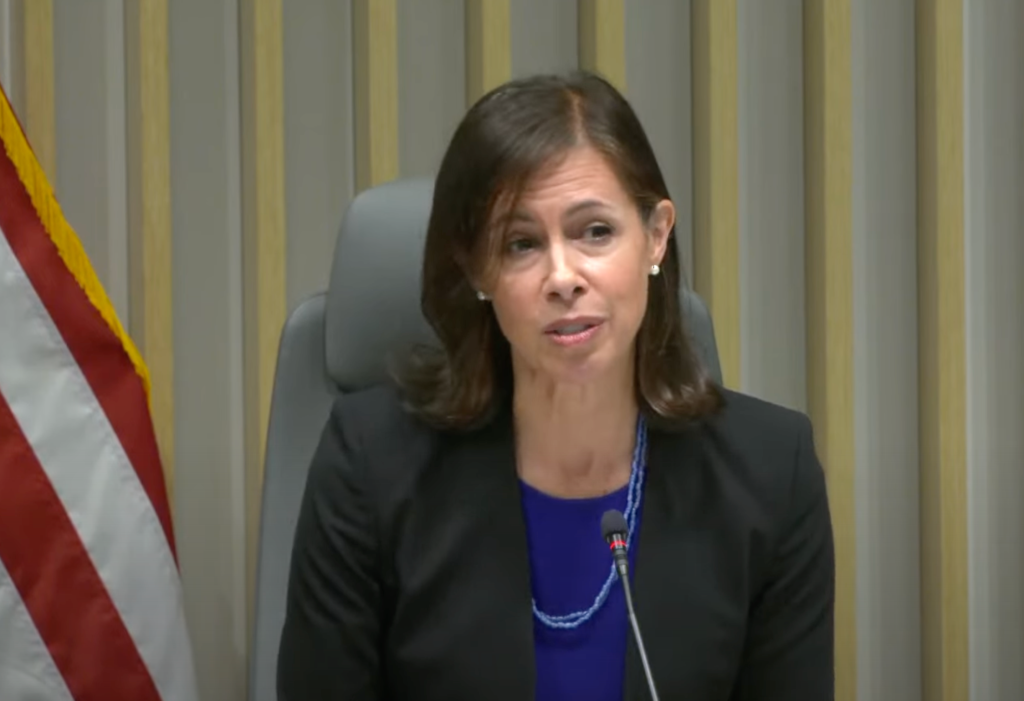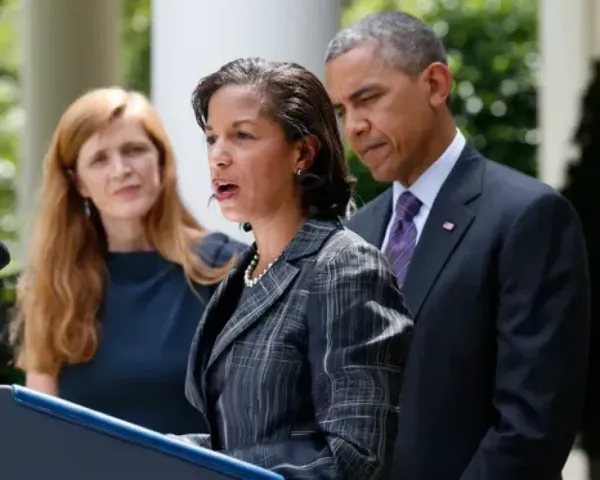FCC Opens More Airwaves for Satellite Broadband
Agency opened 17 GigaHertz for satellites, issued a fine against a deepfake political robocalls.
Jake Neenan

WASHINGTON, Sept. 26, 2024 – The Federal Communications Commission unanimously voted Thursday to make more airwaves available for satellite broadband.
The move will make more spectrum in the 17 GigaHertz band available for non-geostationary orbit (NGSO) satellites, including the low-earth orbit satellites that can provide broadband. The agency said it creates a 1,300 megahertz block for NGSO systems.
“This large, contiguous block of spectrum will support advanced services, including high-speed broadband access, and our rules will allow a range of use cases from different orbits,” FCC Chairwoman Jessica Rosenworcel said.
Operators of the geostationary orbit systems, which orbit above a fixed point along the equator, that already use the band had asked for strong protections against interference, including an “exclusion zone” around their satellite arcs. The public draft of the order circulated earlier this month said the agency wasn’t persuaded to go that route, instead opting for power level limits.
Agency officials said there were no substantive changes from the draft order, only clarifying edits.
Enforcement actions
The agency also issued a $6 million fine against Steve Kramer, a political consultant who used an AI-generated deepfake of President Joe Biden’s voice in a robocall scheme to dissuade New Hampshire voters from participating in the state’s Democratic primary. The agency first proposed the fine in May.
Republican Commissioner Nathan Simington dissented from the forfeiture order and six other enforcement actions related to pirate radio stations, making good on his promise to dissent from every such action until the agency reworks its enforcement process in light of SEC v. Jarkesy. The June Supreme Court case held that defendants were entitled to a jury trial, rather than an in-house adjudication, in some cases before being fined by the Securities and Exchange Commission.
Brendan Carr, the FCC’s senior Republican, has called for a similar rulemaking, but he voted to approve all of Thursday’s fines and proposed fines.
“To me, we not only had the authority, but in my reading it wasn’t clear that Jarkesy would require a different outcome in those cases,” he told reporters after the meeting.
EchoStar extension
Carr also reiterated complaints that he wasn’t looped into the agency’s decision Friday to extend EchoStar’s deadline for building out its 5G network. The approval came quickly, just three days after EchoStar submitted a request for the extension.
“I do think there was a pretty significant process foul on this one,” Carr said. “I thought commissioners’ views should have been solicited and at a minimum, obviously, there should’ve been a heads up before the decision was made.”
The deadline, now pushed to 2028 in exchange for some public interest commitments like a nationwide low-cost plan, was imposed when the company took some of Sprint’s assets in exchange for the Justice Department allowing the T-Mobile/Sprint merger to go through.
Rosenworcel didn’t hold a press conference after the meeting because of a scheduling conflict. An agency spokesperson said the move wasn't out of the ordinary for a construction extension request.
“Consistent with FCC rules and standard practice, the Bureau worked with Dish to make adjustments to its buildout plans to accelerate 5G open RAN deployment,” the spokesperson said. “Given the circumstances, these extensions presented the best path forward for competition and consumers.”
Update: this story was updated to add the above statement from an FCC spokesperson.










Member discussion